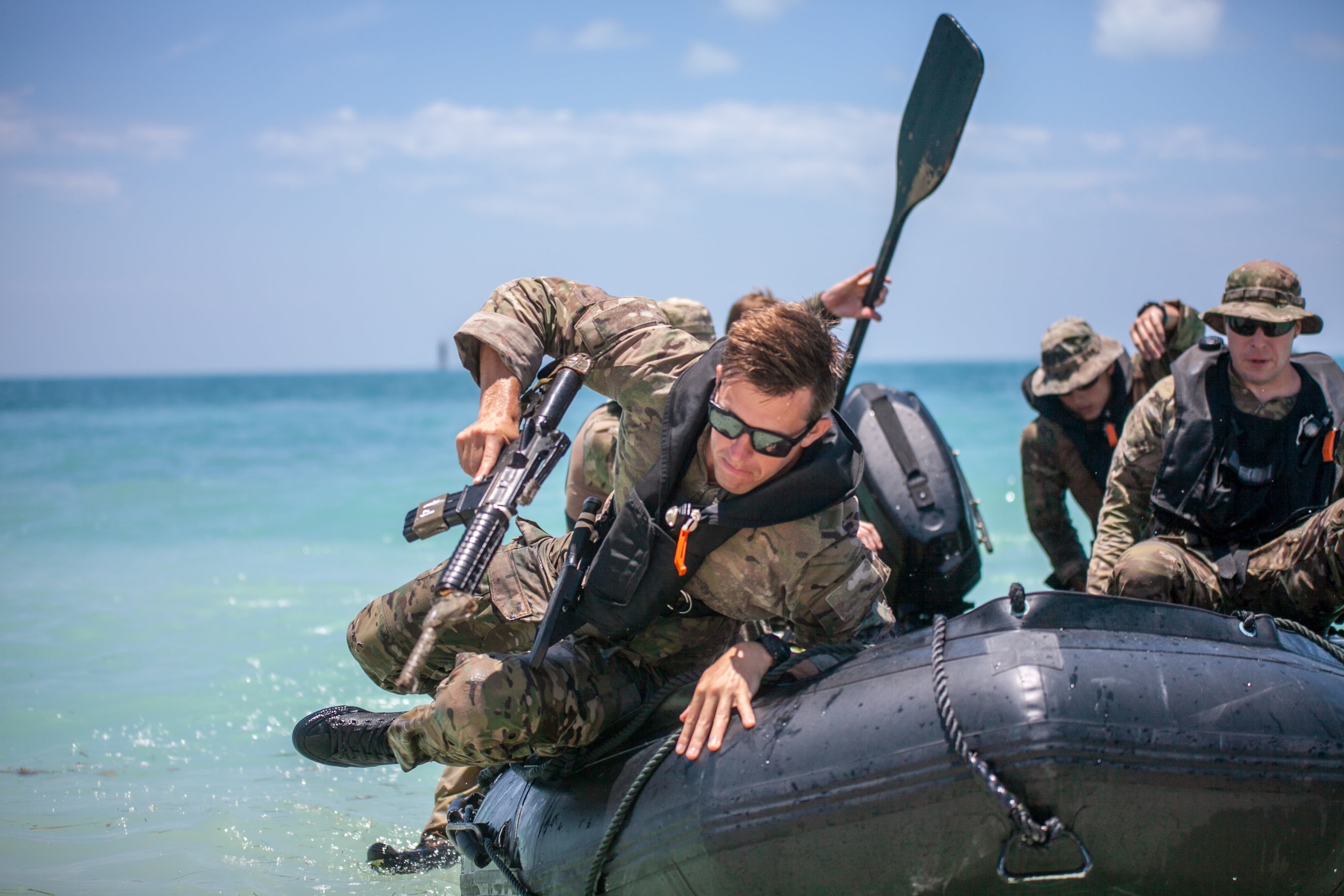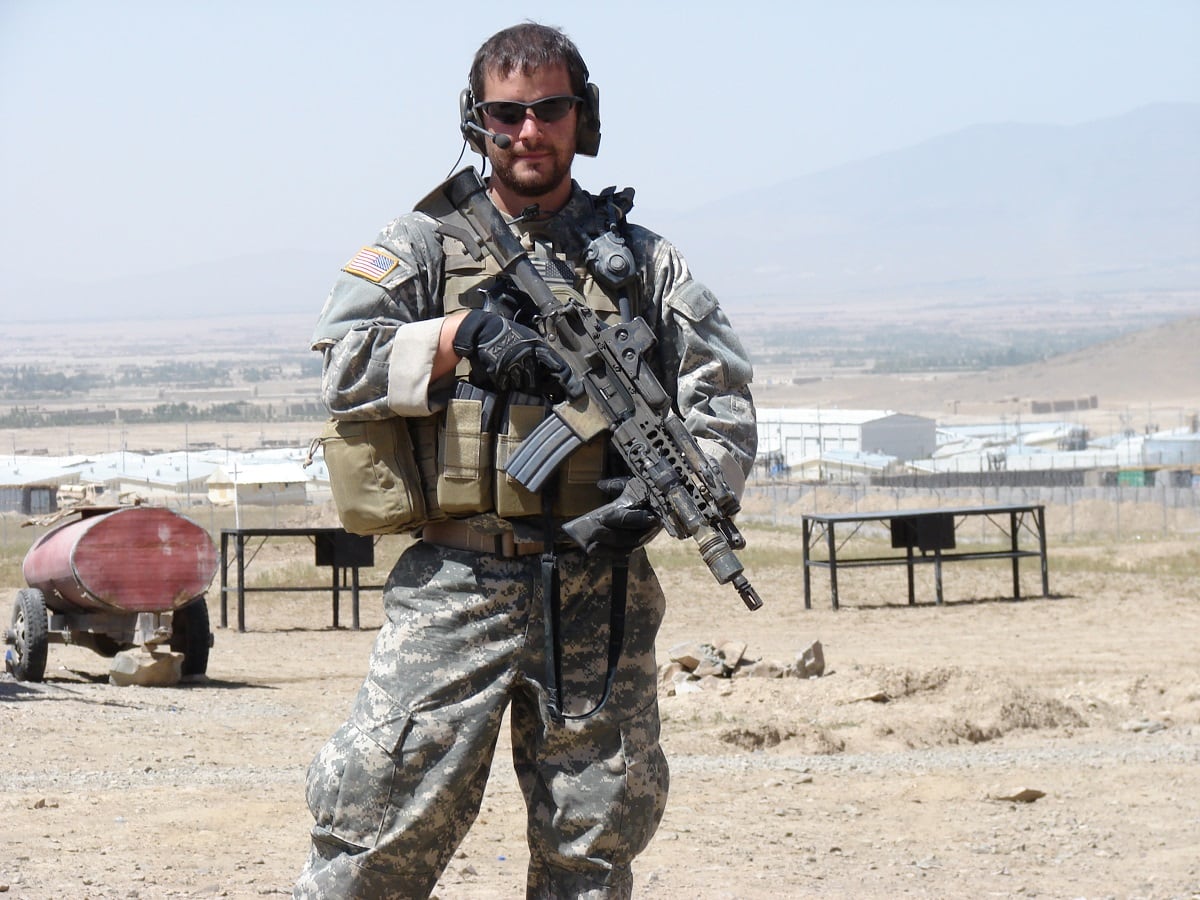It was about 3:30 a.m. on April 1, 2017, and Sgt. 1st Class Erik Kingsley was heading to the Raleigh airport with his wife and two daughters to drop off his airman brother-in-law, who was heading off to Okinawa, Japan.
His wife was still mostly asleep when he told her to call 911. The Special Forces soldier had seen headlights shining out of a ditch on the side of the highway, and they were pulling over to help.
“The embers were already starting to shoot from the bottom of the vehicle,” Kingsley, an instructor at the John F. Kennedy Special Warfare Center and School at Fort Bragg, North Carolina, told Army Times in a Wednesday phone interview.
The car was covered in briar patches, he said, and the driver’s lead foot on the accelerator had caused the engine to overheat. As the shrubs caught fire, Kingsley pulled the driver out, then directed his brother-in-law to move their own car farther away, out of the reach of the fire.
“I grabbed the guy, I put him on my shoulders, I started walking out, and the vehicle exploded,” he said.
On Thursday, Kingley received a Soldier’s Medal for his actions, the Army’s highest award for valor outside of combat.
“I’m just honored and happy to be here, and happy that the guy actually survived,” he said.

The explosion knocked him to the ground, he said, but once they were safely on the side of the road, he woke the man up to tell him what had happened, while assessing him for injury. The driver had been drunk, but he survived with only minor cuts and bruises.
When emergency personnel showed up, Kingsley let them know there was no one else in the vehicle, then gave his command contact info in case the state trooper needed to follow up.
He did, which is how Kingsley’s command learned of his heroics, prompting them to put him in for the Soldier’s Medal.
“As quiet professionals, we’re not putting out business out there,” Kingsley said. "We’re not, ‘Hey, look at me!' And trying to claim credit for everything.“
RELATED

As for his family, they did manage to get his brother-in-law to his flight on time. For his wife, the gravity of the situation settled in a couple days later.
“She was thinking about the explosion, replaying it in her head,” Kingsley said.
And though she had pictured him in danger before, she’d never known so many details.
“But for her to actually see it in person, it kind of put it into perspective for her,” he said.
Once the adrenaline wore off, he added, he realized how close he came to dying as well. But in the moment, lifesaving training took over. And that’s the lesson he would pass on to his trainees.
“Doing the right thing all the time — right place, right time, right uniform — is the key to success,” he said. “It sounds simple, but it’s those simple discipline tools that we try to instill in these soldiers. If you can’t operate on a basic level, how can we expect you to operate at a higher level?”
Meghann Myers is the Pentagon bureau chief at Military Times. She covers operations, policy, personnel, leadership and other issues affecting service members.





